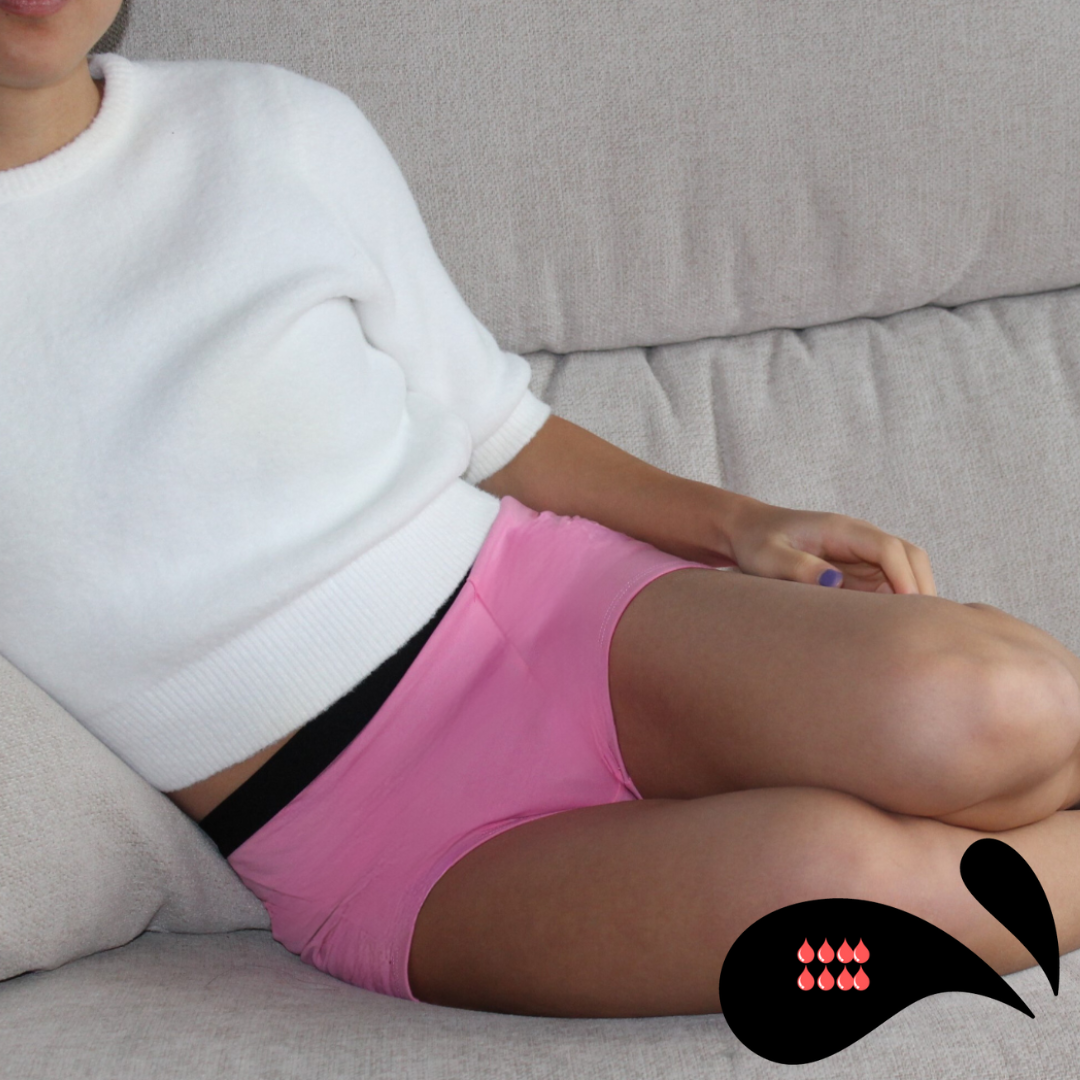Heavy periods in Teenagers
Here at Nickeze, we get a lot of questions about managing heavy periods in teenagers. And no doubt, they can be very challenging. You have a child dealing with school, sports, first relationships, social situations, swimming and then there is a heavy period to contend with. The fear of leaks, the social embarrassment, even tough we all know that it a natural body process, but try to tell a young teen this!
What are heavy Periods?
Heavy periods, also known as menorrhagia, can be a concerning issue for teenagers. It's important to understand that menstrual cycles can vary widely among individuals, and what might be considered heavy for one person may not be the same for another. However, if a teenager is experiencing extremely heavy or prolonged periods that significantly disrupt her daily life, it's important to address the issue.
Here are some potential causes of heavy periods in teens:
-
Puberty: During the first few years after menarche (the onset of menstruation), periods can be irregular and heavy as the body adjusts to hormonal changes. This is often considered normal and usually improves over time.
-
Hormonal Imbalance: Fluctuations in hormone levels, particularly imbalances between estrogen and progesterone, can lead to heavy periods. Conditions like polycystic ovary syndrome (PCOS) can cause hormonal imbalances.
-
Uterine Fibroids: These are noncancerous growths in the uterus that can lead to heavy menstrual bleeding.
-
Adenomyosis: This condition occurs when the tissue that normally lines the uterus (endometrium) grows into the muscular wall of the uterus. It can cause heavy, painful periods.
-
Endometrial Polyps: These are small growths in the lining of the uterus that can contribute to heavy bleeding.
-
Blood Disorders: Conditions like von Willebrand disease and platelet function disorders can lead to heavy bleeding.
-
Thyroid Disorders: Thyroid dysfunction can affect menstrual cycles and lead to heavy periods.
-
Medications: Certain medications, such as anticoagulants, can contribute to heavier bleeding.
-
Stress and Lifestyle Factors: Stress and extreme weight loss or gain can affect hormonal balance and menstrual patterns.
If your teenager is experiencing heavy periods, it's important for her to consult a healthcare provider. The healthcare provider can perform a thorough evaluation, which may include a medical history, physical examination, and possibly blood tests or imaging studies. Treatment options will depend on the underlying cause and may include:
- Hormonal birth control: This can help regulate menstrual cycles and reduce bleeding.
- Nonsteroidal anti-inflammatory drugs (NSAIDs): These can help reduce pain and bleeding.
- Iron supplements: Heavy periods can lead to iron deficiency anemia, so iron supplements may be recommended.
- Medical procedures: In some cases, procedures like dilation and curettage (D&C), endometrial ablation, or even surgery may be considered.
It's important to emphasise that heavy periods are not something a teenager should simply endure. Seeking medical attention and support is crucial to ensure their overall health and well-being. Life is for living and not for 5 days to be stolen from them every month dealing with painful, heavy periods.
Nickeze have super absorbent period underwear styles to help manage leaks. Please reach out to us for advice, as we have many tricks up our sleeves to manage heavy periods.
Team Nickeze





